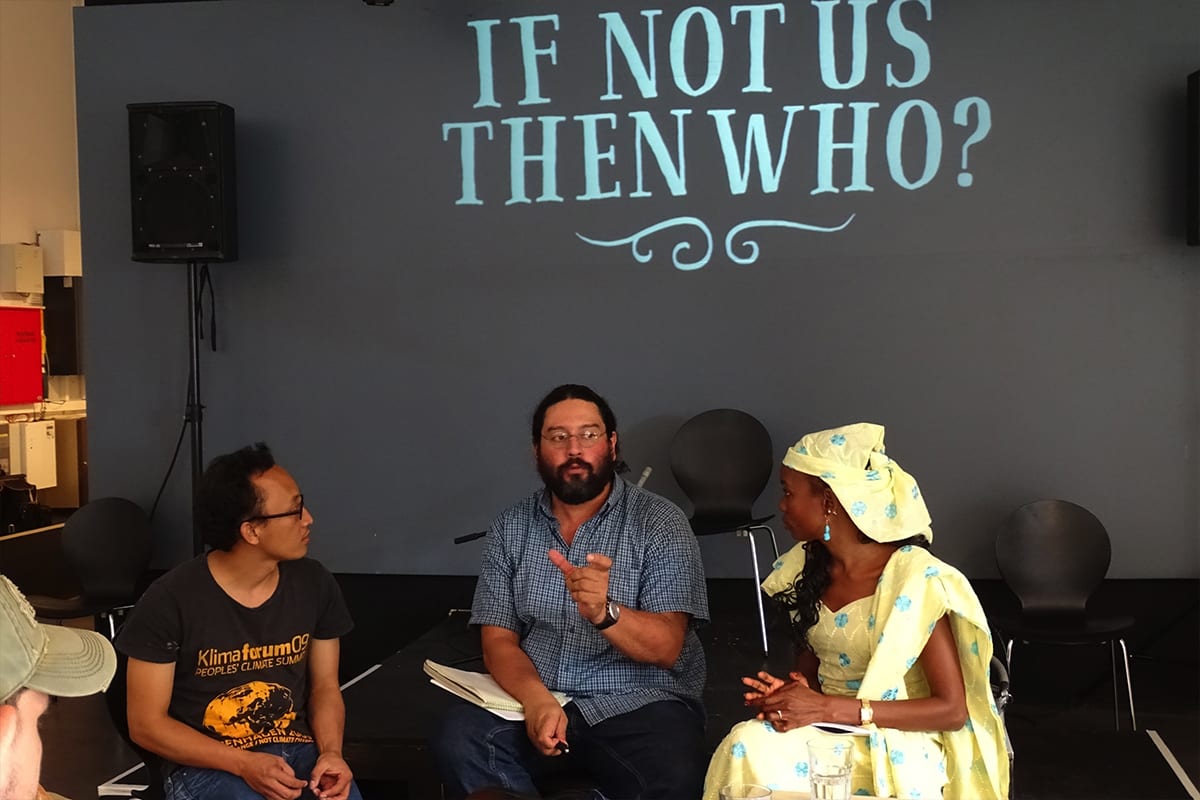In Bonn, Forest Peoples Share Their Stories
By Wanda Bautista, June 10, 2015

Mesoamerican Alliance of People and Forests
“Two weeks ago, Jopi Peranginangin, an environmental activist and my dear friend, was brutally murdered, stabbed outside of a bar in Kemang, South Jakarta, by a member of the Indonesian military.”
So began a talk on Sunday by Mina Setra, Deputy Secretary General of The Indigenous Peoples’ Alliance of the Archipelago (AMAN), delivered remotely during a side event in Bonn that she was unable to attend in person.
“The investigation is still ongoing,” she continued, “but why do such killings continue to happen to activists and to indigenous and community leaders in different parts of the world?”
Mina’s question was only one of the many directed at an audience made up of United Nations Framework Convention on Climate Change (UNFCC) delegates and of students and their families. It was during a side event at the Bonn UNFCCC Climate Negotiations, where global leaders are currently debating land use, forests, food security and other climate-related issues. The goal is to draft a universal climate agreement that will be presented in Paris at the end of this year.
Organized by Handcrafted Films – a mission driven UK-based film production company – the event brought together Indigenous leaders from Africa, Asia, and the Americas to share their experiences at the frontlines of an often deadly battle to guard tropical forests. A recent report suggests these conflicts kill at least two people every week, of which 40 percent are indigenous. In a statement accompanying the study, Global Witness, the London-based NGO that authored the report, noted the death toll is probably higher: “Many of the murders we know about occurred in remote villages or deep within the jungle, where communities lack access to communications and the media. It’s likely many more killings are escaping public records.”
In telling their stories during the side event in Bonn, Mina Setra, Hindou Oumarou of the Indigenous Peoples of Africa Coordinating Committee (IPACC) and Victor Lopez Illescas of the Mesoamerican Alliance of People and Forests (AMPB) called on the negotiators in Bonn to design an inclusive and fair climate agreement. They said it should support the rights of indigenous peoples and local communities, and recognize their crucial contributions to slowing climate change. They argued that such an agreement would be fundamental to maintaining the ability of traditional forest peoples to continue to do what they have been proven to do best—protect the globe’s carbon-sequestering tropical forests from destruction.
To learn more, check out this short video of the event, Indigenous Peoples and Forests Showcased in Bonn.
